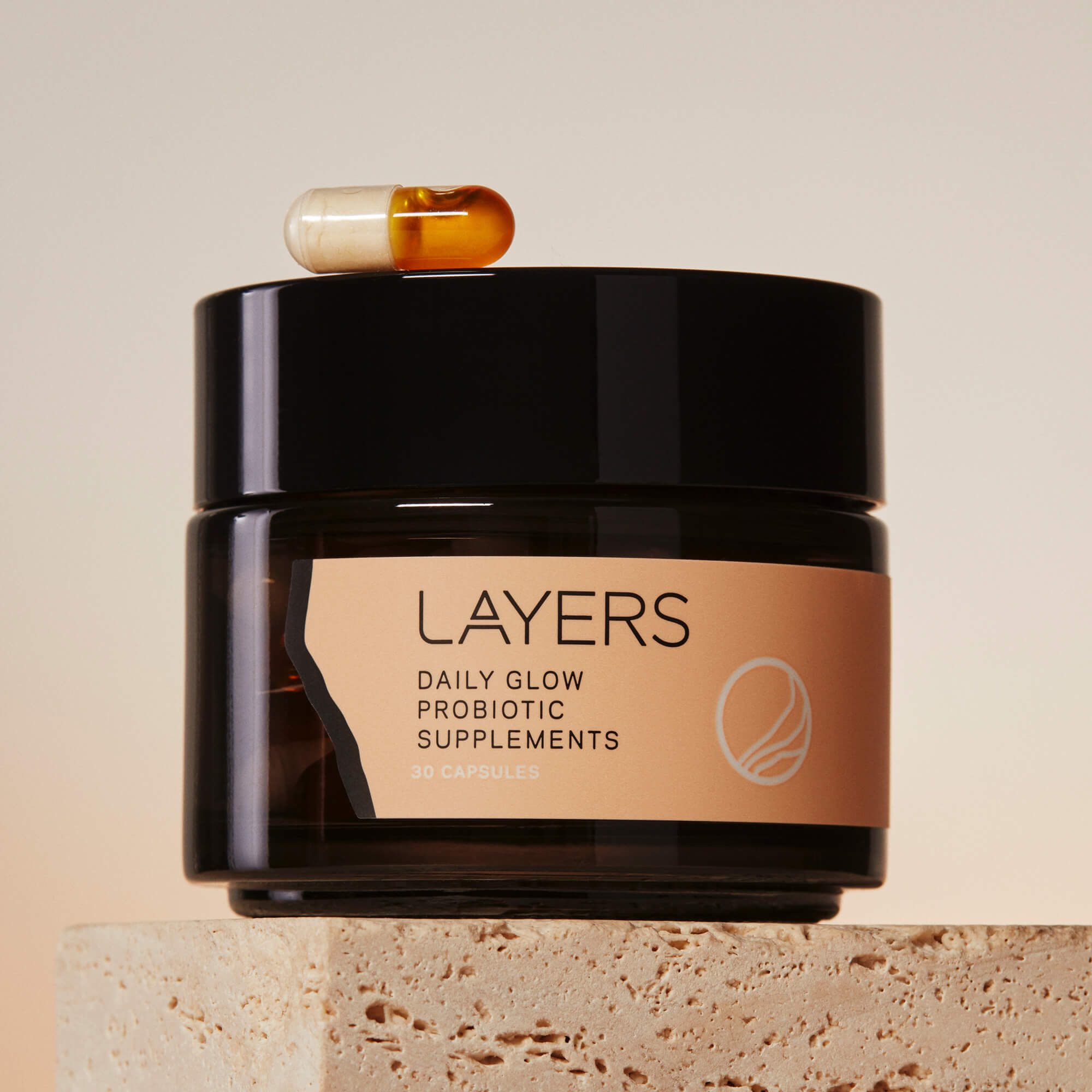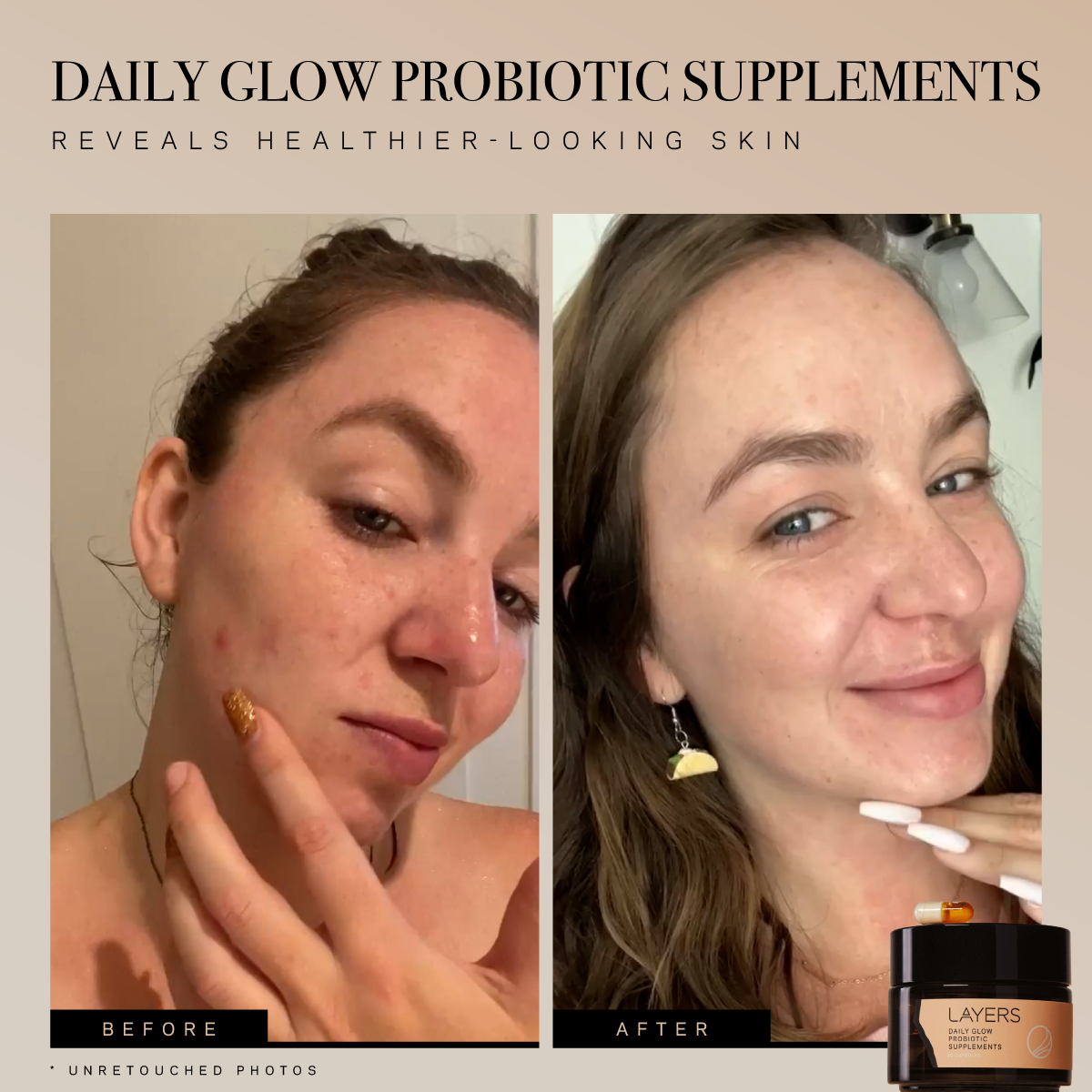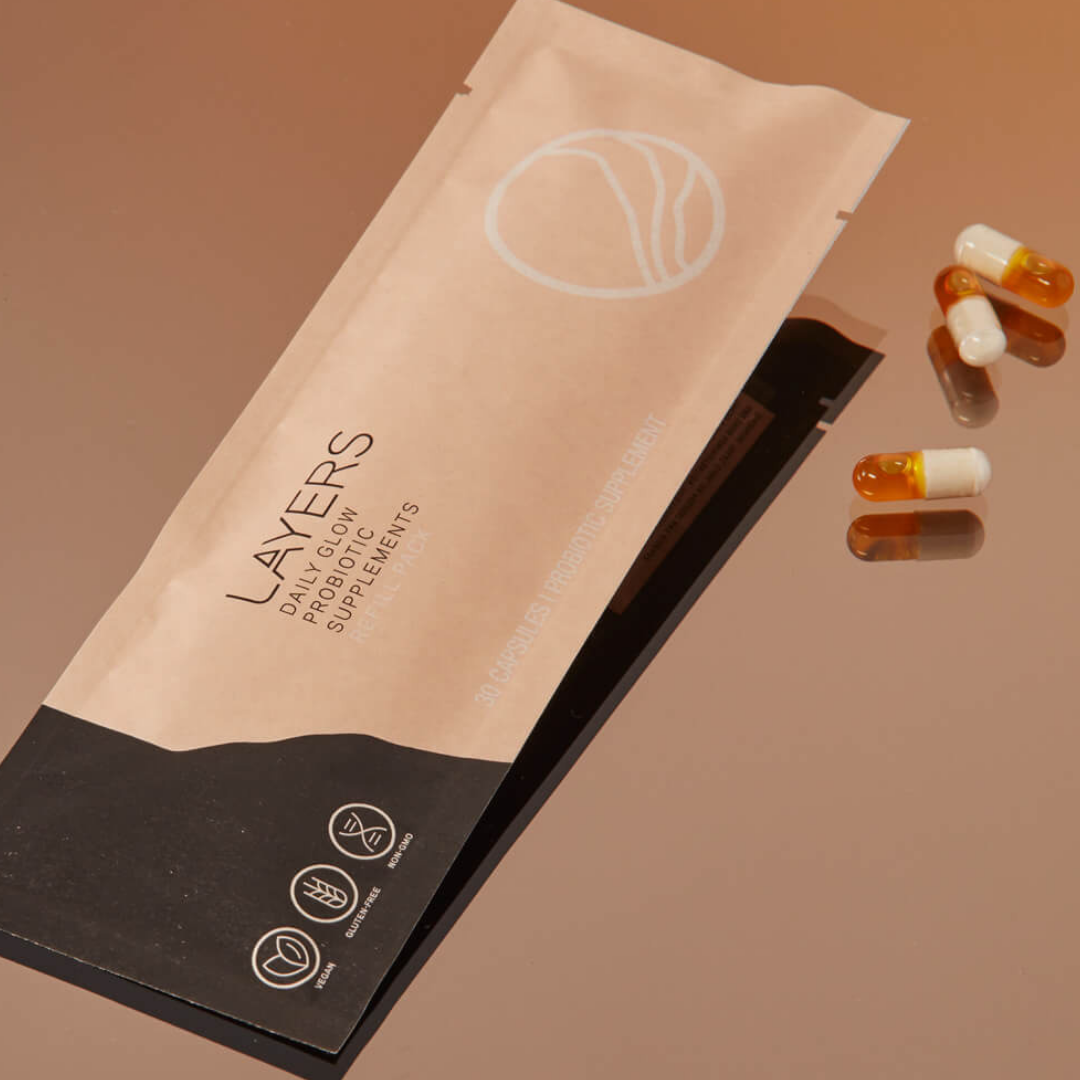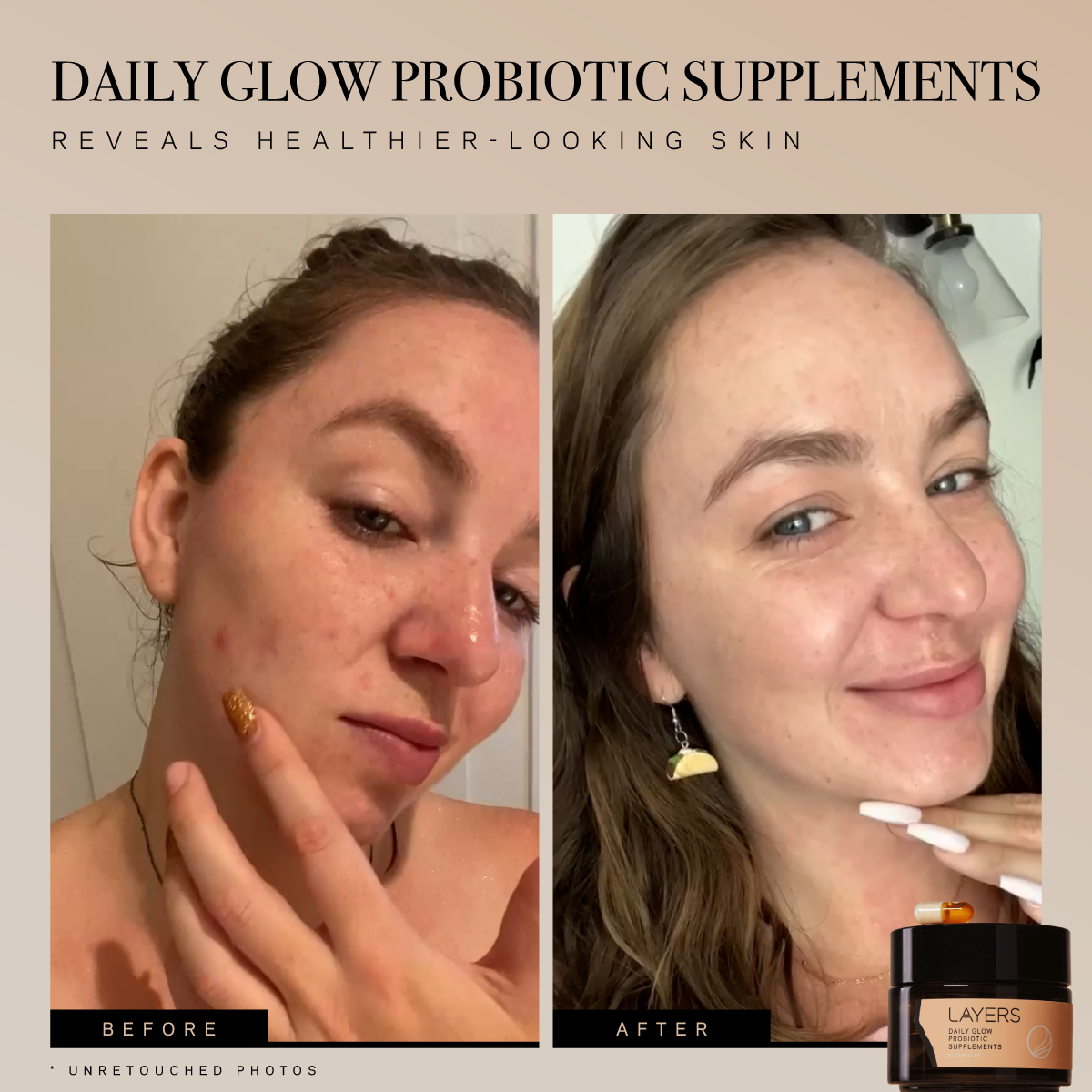Here’s what you need to know about the microbiome balancing act that’ll give you the glow you’ve been looking for.
Are you feeling sciency? It’s time to tap into your inner chemist while we break this down to basics. The term pH is short for potential hydrogen. It’s a unit of measurement used to describe the amount of hydrogen contained within a liquid. The “balance” of your pH refers to the acid + alkaline ratio within that unit. The measurement will be different for your gut, your skin, and even your hair.
WHY IS SKIN pH IMPORTANT?
If your skin pH is out of balance, then you’ll start to see and feel the signs. It can present in the form of acne, psoriasis, oily skin, or accelerated signs of aging like deep lines and wrinkles. When your skin pH is in a balanced state, you don’t experience these types of symptoms on a regular basis.
Your skin pH level has a big impact on your microbiome. It sets the stage for the type of bacteria it can support, and you want to maintain an environment that allows the good bacteria to thrive. This creates a healthy barrier function allowing your skin to retain the right level of moisture.
WHAT’S THE BEST pH RANGE FOR SKIN?
Healthy skin is generally in the pH range of 4-6, which leans slightly acidic. The higher the number, the more alkaline. So for example, if you have a skin pH of 7-9, you might be experiencing dry or flaky skin. If your pH is on the lower end of the spectrum, you might notice signs of inflammation.
FACTORS THAT AFFECT THE pH OF YOUR SKIN:
There are genetic factors that determine your personal pH “happy place”, and there are external factors that impact that natural-born state of balance. Things like stress and travel, especially to places with high levels of pollution, can affect your pH temporarily. If you’re dealing with these issues consistently, your skin might be out of balance.
These are the main factors that affect the pH of your skin:
-
Age
-
Genetics
-
Detergents
-
Cosmetics
-
Soaps
-
Topical antibiotics
-
Pollution and other irritants
HOW CAN I BALANCE MY SKIN’S pH?
Balanced skin is an everyday act. There’s no one-stop sheet mask or fancy procedure that’s going to help you achieve consistently balanced skin. So, it really comes down to two things:
I. Your Outside Approach: What your skincare routine looks like, specifically, the products you’re using day to day.
The list of skin irritants is long and plentiful. And unfortunately, you have to be on the lookout when you’re buying beauty products of all kinds. Here are some tips for microbiome-friendly cleansing:
What to Avoid:
-
Bar Soaps that can disrupt the pH of your skin
-
Drying alcohols (specially denatured (SD), ethyl, isopropyl) that evaporate quickly and disrupt your skin barrier by damaging your skin’s natural lipids and fatty acids. Even if you have oily skin, you should avoid these alcohols as they often result in your skin overcompensating for the dryness, thereby producing even more oil.
-
Harsh paraben preservatives that can kill beneficial bacteria
-
Antibiotic ingredients and antiseptics that kill your beneficial bacteria
What to Look for:
-
Hydrating alcohols often seen on ingredient lists as cetyl, stearyl, and cetearyl alcohol. These fatty alcohols are emollients that keep skin hydrated and supple.
-
Probiotic bacteria strains that have been shown to strengthen your skin barrier, restore pH, alleviate inflammation, and keep skin hydrated by promoting collagen, fat, and ceramide production.
-
Try our Balancing Milky Cleanser and Immunity Moisturizer to help balance your skin pH with healthy probiotics.
II. Your Inside Approach: This includes your diet and what you’re putting in your body.
Skin pH isn’t just about what’s on the outside, and your diet is an important factor that reflects through your skin. A proper pH requires good bacteria, and you can get that through healthy, whole foods. This means plenty of dark, vitamin-packed leafy greens, berries with antioxidants, and lots of water to stay hydrated.
A daily oral probiotic can also help in significant ways. The influx of good bacteria will help with digestive function, working from the inside out to balance your gut microbiome. The connection between the gut and the skin is important in aiding your pH balancing act. Start taking a daily probiotic like our Daily Glow Supplements, which are clinically proven to give you visible results in only 15 days!
A balanced skin pH means naturally brighter, healthier-looking skin. If you’re ready to stop stressing about your complexion and start supporting its natural function, approach it from the inside out. Healthy probiotics and skin products that don’t cause irritation are out there, and that’s why we make it easy with a line of products that respect and support your natural flora. Clean, beautiful, glowing skin is possible, and it starts with better balance.








